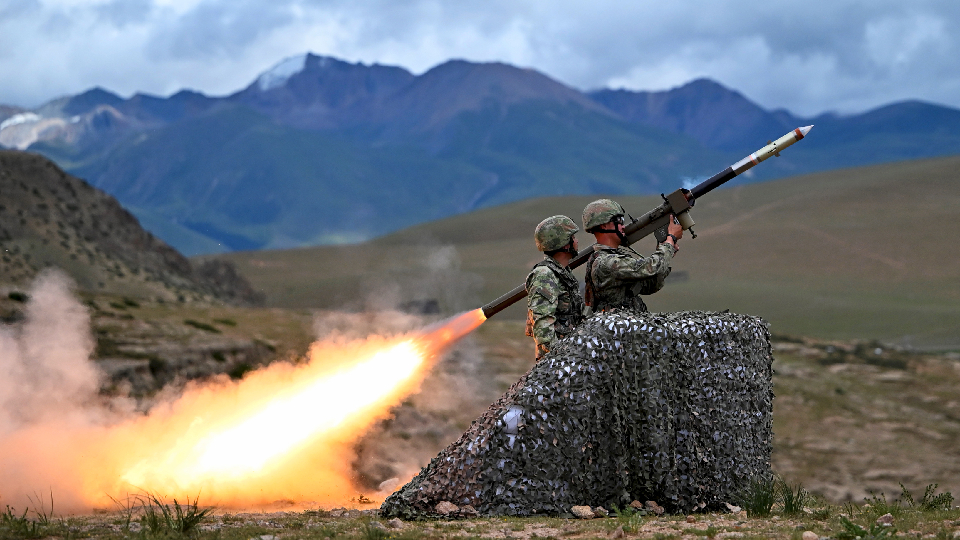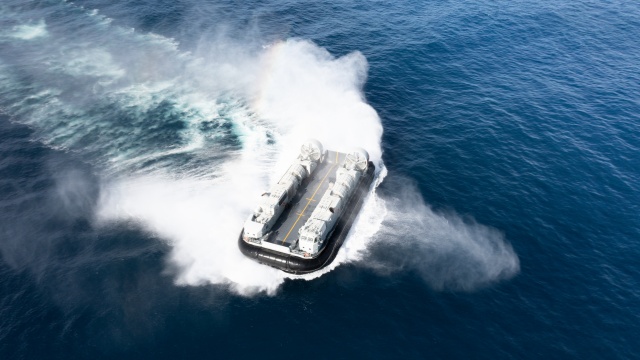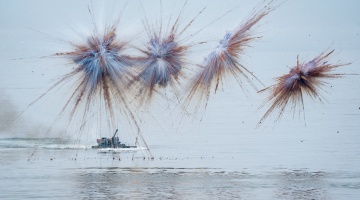廉德瑰
By Lian Degui
美国参议院18日通过拜登政府30多位外交和国安职位的人选提名,其中包括曾担任奥巴马政府白宫幕僚长的拉姆•伊曼纽尔出任驻日本大使的任命。包括参议院外交关系委员会副主席吉姆•里施在内的几名共和党议员投下赞成票。里施等人支持的理由是,预计伊曼纽尔会反对拜登政府内部有关宣布美国“不首先使用核武器”的提议。
The US Senate confirmed on December 18 more than 30 ambassadors and national security nominees proposed by the Biden administration, including the appointment of Obama’s White House Chief of Staff Rahm Emanuel as US ambassador to Japan. Several Republican senators, including ranking member of the Senate Foreign Relations Committee Jim Risch, voted in favor of the appointment on the ground that they expected Emanuel to oppose the proposal in the White House to announce America’s willingness to “no-first-use of nuclear weapons”.
关于这项提议,日本方面一直非常关注。本月7日,自民党宣传本部长河野太郎在参加美国智库线上会议时,就拜登政府正在讨论的“不首先使用核武器”政策问题表示了担忧。他说,这种动向“可能会向中国和朝鲜发出错误信号”。
The Japanese side has paid close attention to this proposal. Taro Kono, Director of the Liberal Democratic Party Public Affairs Department, expressed his concerns about the policy of no-first-use nuclear policy under discussion by the Biden administration at an online meeting of American think tanks on December 7, saying the proposal might send a wrong signal to China and the DPRK.
实际上,美国一直在评估自己在战略上的优势,探讨推行何种核政策才是最安全和最有效的。早在1957年美国就把核武器部署到韩国,目的在于遏制朝鲜的进攻。美国声称在朝鲜半岛南北军事不平衡的条件下,如果朝鲜铤而走险,将遭受核打击的报复。所以,首先使用核武器就是一种核威慑、核讹诈。
In fact, the US has been assessing its strategic advantages in order to decide which nuclear policy is more secure and effective. The US deployed nuclear weapons in ROK as early as 1957 with the aim of fending off attacks from the DPRK, vowing to retaliate with nuclear attacks if the DPRK dared to make a dangerous move amid the unbalanced South-North military landscape on the Korean peninsula. It’s clear that the first-use of nuclear weapons is essentially a kind of nuclear deterrence and blackmailing.
但在冷战期间,由于苏联拥有足够的核力量,美国不可能完全将其摧毁,首先使用核武器不可能对苏联构成有效威胁,反而会给自身带来致命危险。所以,美国当时就有人探讨过是否放弃首先使用核武器政策以避免核战争。
During the Cold War period, the US was unable to destroy the Soviet Union because Moscow had enough nuclear warheads. Therefore, using nuclear weapons first wouldn’t pose any valid threat to the Soviet Union, but would instead bring itself a lethal blow. That’s why there was discussion then in the US about whether they should give up the first-use policy to avoid a nuclear war.
现在,美国再次感到力量的平衡发生了明显变化,首先使用核武器,已经失去了有效威慑的意义。美国科学学术国际安全保障与军备管理委员会发表的《美国核武器政策的未来》报告中指出:冷战结束后,美国在核领域最大的危险不是与俄罗斯发生蓄意的核战争,而是偶发性核战争或核扩散。且美国部署核武器的唯一目的,就是遏制对美国及其同盟国的核攻击,因此,应该宣布不首先使用核武器。
Now the US is once again feeling obvious changes in the balance of power, and the first-use of nuclear weapons has lost its function as an effective deterrence. The report titled The Future of U.S. Nuclear Weapons Policy released by the Committee on International Security and Arms Control of the National Academy of Sciences pointed out that the greatest nuclear risk facing the US after the Cold War is not an intentional nuclear war with Russia, but unintended nuclear war or proliferation. Since America’s only purpose of deploying nuclear weapons is to counter any nuclear attack against itself and its allies, it should announce the no-first-use of nuclear weapons.
然而,当前日本对美国的这一动向十分担心。内阁官房长官松野博一表示,日本认为这种“不首先使用”政策必须所有拥核国家同时宣布才是现实的,否则没有意义。日方认为“面对中国、朝鲜的核威胁”,美国如果宣布不首先使用,那么这个“核保护伞”也就没有意义了。
But Japan worries very much about this tendency in the US. Japan’s Chief Cabinet Secretary Hirokazu Matsuno said the “no-first-use” policy is meaningless unless all nuclear weapon states declare to practice it simultaneously. The Japanese side reckoned that if the US announced to adopt this policy, its function as a nuclear umbrella would be lost.
其实,日本真正担心的是冲绳。日本军事专家认为美日对台湾的干涉,首先必将令冲绳美日军事基地遭到灭顶之灾。日本担心如果美国宣布不首先使用核武器,美日将无法应对中国的“高超音速武器”。
Actually, what Japan is truly worried about is Okinawa. Japanese military experts warned that America and Japan’s interference in the Taiwan question would first court a catastrophe to their military base in Okinawa, and Tokyo is worried that if the US commits to the “no-first-use” policy, they would be unable to respond to China’s hypersonic weapons.
由此可见,日本以“唯一遭受核打击的被害国立场”采取的无核政策,实际上是反对除美国之外的其他国家拥有核武器。一个曾遭受美国核打击的国家,现在却要依赖美国的“核保护伞”,还要用美国“首先使用核武器”政策来进行核威慑,这颇具讽刺意味。
Evidently, when Japan adopted the no-nuclear policy as “the only country subject to nuclear attacks”, it actually opposed the possession of nuclear weapons by any other country than the US. A country that was hit by the US’s nuclear bombs is now relying on its nuclear protection and making nuclear deterrence with its “first-use” policy – how ironic!
更值得注意的是,日本从来没有放弃自己的核冲动。日本前内阁法制局长官大森政辅曾在参议院说:“出于自卫目的可以拥有核武器。”他还认为,日本可以拥有必要的最小限度的核武器。现在日本拥有制造核武器的技术能力,其是否走向核武装,取决于日美同盟能否有效保护日本的安全,以及美国的“核保护伞”是否可靠。如果日本认为不可靠,就会借口安全问题修改宪法走向核武装。如今,日本正以这个借口探讨增强“先手打击敌国基地”的能力。所以,我们要警惕日本核政策未来可能发生异动。
What’s worth more attention is that Japan has never given up its nuclear ambition. Masasuke Omori, former director-general of the Cabinet Legislation Bureau, once said in the Senate that Japan could have a necessary, minimal scale of nuclear weapons for the purpose of self-defense. Now Japan is technically capable of manufacturing nuclear weapons, but whether it will get down that path will depend on whether the US-Japan alliance can guarantee its security and whether America’s “nuclear protection” is reliable enough. If Japan doesn’t think so, it would revise the constitution and arm itself with nuclear weapons on the excuse of security – the same excuse it is using now to discuss strengthening the capability of taking preemptive steps to attack enemy bases.
(作者是上海外国语大学日本研究中心主任、教授)
(The author is director and professor at the School of Japanese Studies, Shanghai International Studies University)
Editor's note: This article is originally published on huanqiu.com, and is translated from Chinese into English and edited by the China Military Online. The information, ideas or opinions appearing in this article do not necessarily reflect the views of eng.chinamil.com.cn.













